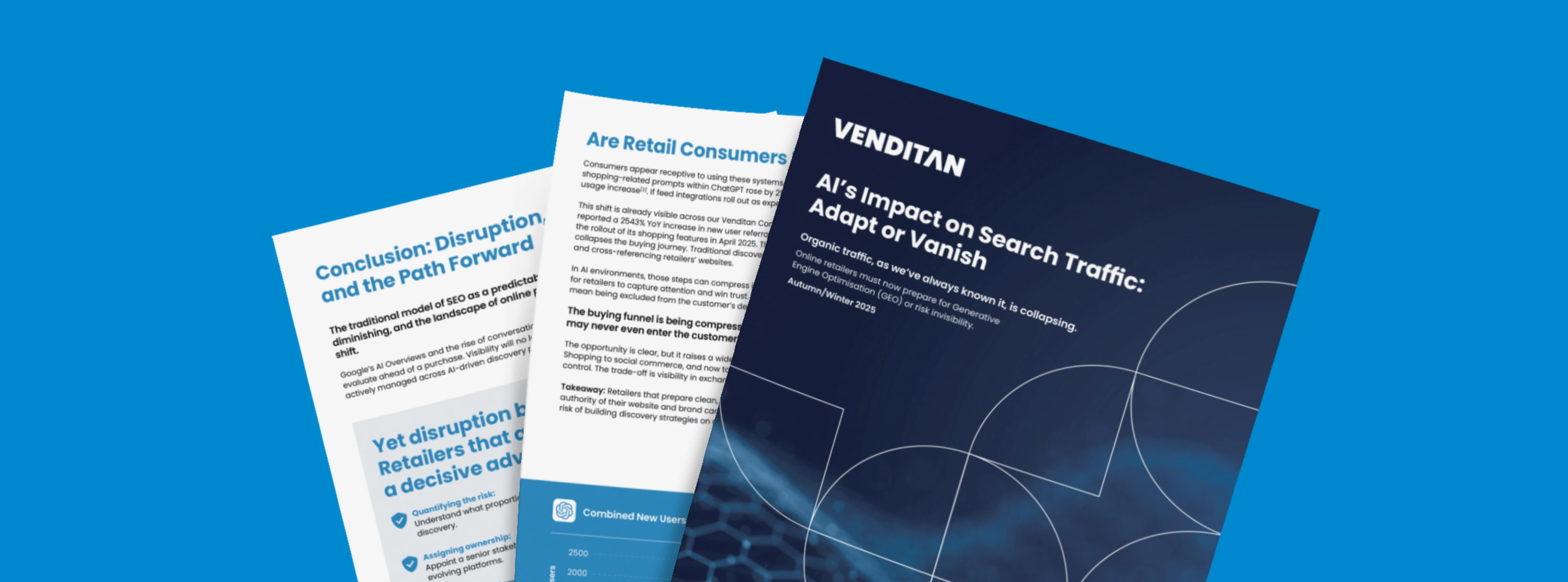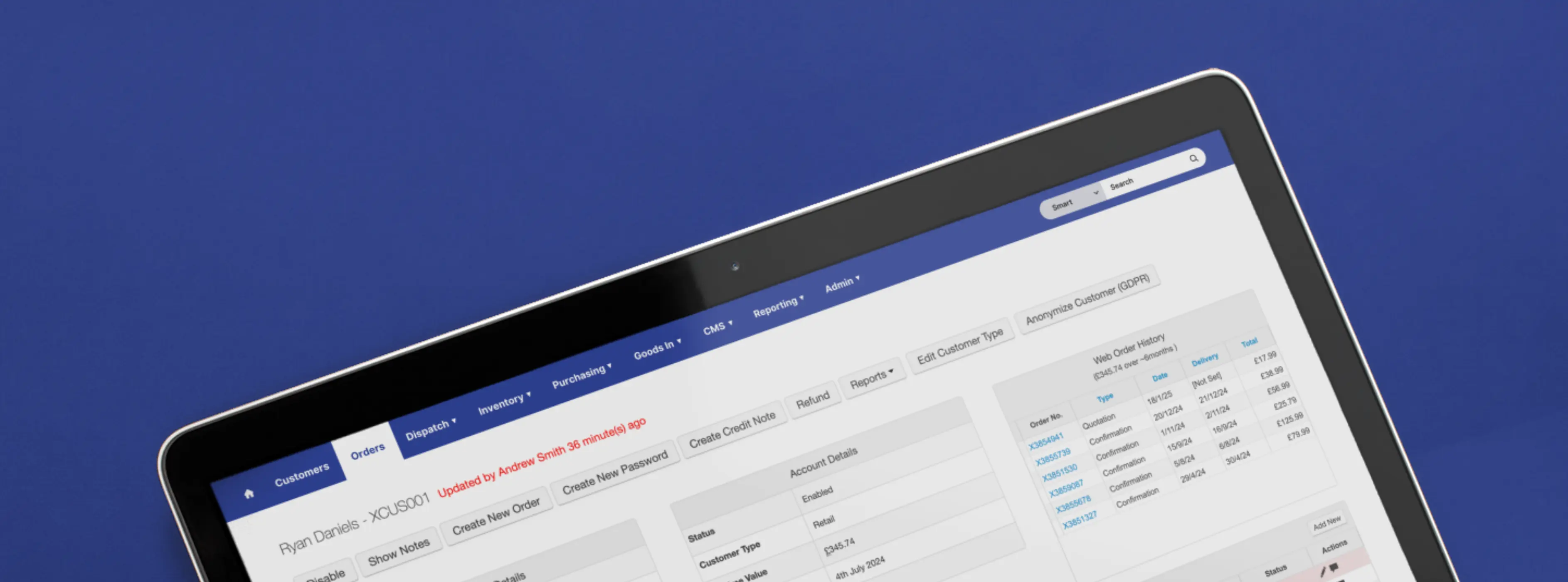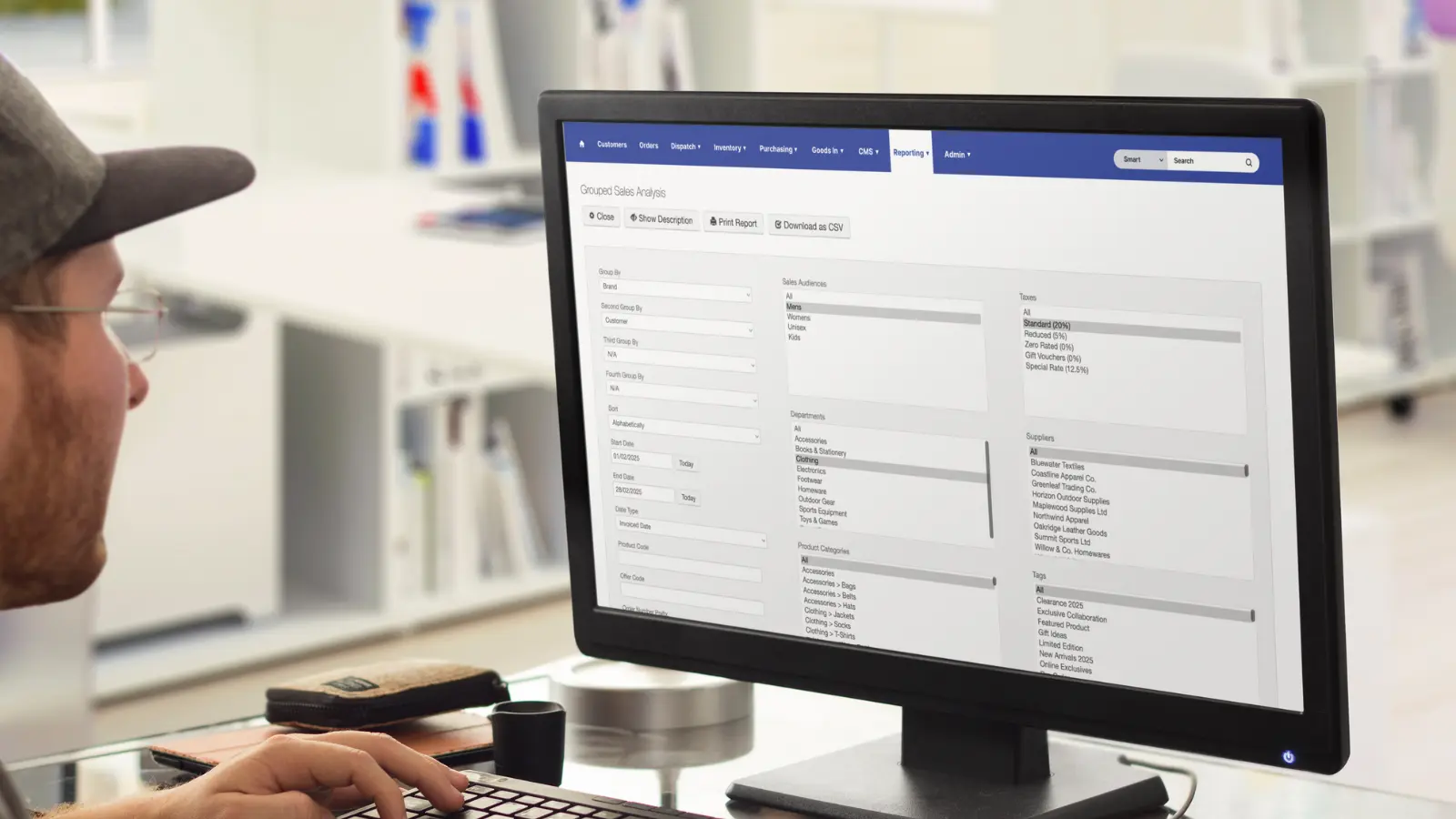More and more retailers are seeing the benefits of improving their mobile offering, whether that is through taking the initial steps of getting a mobile-responsive eCommerce websites or diving into the exciting world of eCommerce apps.
The impact of mobile shoppers habits’ are having on retail is undeniable. Retailers and eCommerce businesses who are keeping up with this trend are set to reap the rewards as mobile commerce grows. Improving your offering relies on implementing the best eCommerce app features.
The number of people shopping on apps is growing. A report from last year found that people spent a huge 18 billion hours on eCommerce apps. That’s a lot of time for retailers to be focusing on targeting with an app of their own.
Let’s take a look at 16 must-have eCommerce app features we’ve put together for you.
Quick links:
9. Selection of payment methods
11. Detailed product information
13. Managing orders and returns
1. Easy sign-up process
No one enjoys a lengthy sign-up process, especially on mobile. Too many fields to fill out make for a fiddly task. When dealing with app sign-ups, you need to make this process as easy to complete as possible for your users. If they already hold an account with you, app registration should be a simple login. If not, make this super easy with a variety of sign up ways like social media accounts, email addresses or one-time passcodes. Your app should then save their information for future visits and ensure a seamless return for shoppers.
2. Super-fast checkout
Shopping on mobile is all about convenience and you should optimise your checkout process to accommodate quick and easy transactions for your app users. Apps integrate well with Apple Pay and Google Pay, biometric payments and 1-click checkouts, including securely saving card details to their accounts, so you can create a really efficient checkout process for your customers.
3. Sending push notifications
Alert your customers to new products, let them know when wanted items are back in stock, host flash sales and personalised marketing campaigns amongst many other things with push notifications. These simple, but really effective nudges are a great way for your brand to communicate with your customers in a more direct way than email marketing. Ask customers if they’re happy to be kept up to date with these at registration, they’ll be more likely to accept without the need to input an email address here, too.
4. Offline functionality
Offline availability for eCommerce apps is an effective way to boost customer experience and increase sales. Great for people who may not always have access to the internet, like commuters who may want to browse on the way home but suffer signal interruptions. Even if they’re unable to actively purchase while offline, it’s easy to save items for later and return to buy them in just a few short steps.
5. Allow reviews of your app
Track feedback with customer reviews of your app’s performance. This will help you make improvements and track user experience. Not just this, but reviews are a fantastic marketing tool. You already know how great they are for your product, but they’re also important for your app. Great reviews will ultimately encourage more downloads.
6. Advanced search capability
You’ll no doubt have an extensive catalogue so you want users to be able to navigate your app and find the products they want easily. Take advantage of precise filters so users can narrow down on what they’re looking for. You may also want to consider how you can use device features to enhance the in-app search capabilities like voice, image and barcode search.
7. Customer wishlists
Wishlists are an essential element and an incredibly popular feature of eCommerce websites. They allow users to save items for later while browsing and compare items before buying. A wishlist also compliments offline functionality perfectly so users can bookmark items for purchasing later when they have internet access.
8. Effortless log in
As well as a super easy login, returning users should be able to log in effortlessly. Options like social media platform login should be offered, as well as a simple process to reset or retrieve passwords and usernames they may have forgotten.

9. A selection of payment options
The eCommerce payments ecosystem is an incredibly diverse place right now and people are favouring different payment methods. It’s no longer good enough to just offer credit and debit card payment options. With app and mobile especially, digital payments are key – Apple Pay and Google Pay, PayPal all make for quick and convenient payment experiences for mobile users. Be sure to use a payment provider that can support multiple currencies and international payments.
10. In-store features
Mobile has been shown to support the in-store experience, so your app should work to facilitate this and give those shoppers a unique and excellent customer experience. Think about implementing things like barcode search, as mentioned above, that can assist in-store shoppers by simply scanning a product to find out more about the product.
Other in-store features for your eCommerce app can include the ability to check stock in local stores, or sending push notifications when users get within a certain range of your store so you can target them with local and personalised offers.
11. Detailed product information
You might think that long product descriptions on mobile aren’t particularly conducive to a small screen, but on the contrary, a small screen is exactly why you need more detailed product descriptions. On a mobile screen, the view of the product can suffer, so providing more detail will help give customers a more informed view of the item before purchasing. This will help reduce returns and potentially unhappy customers.
You should also be sure to provide as many images of the products on these pages as possible. Think about different angles, 360-degree photos and video.
12. Able to review orders
Just like on your website, you should enable customers to access and leave reviews for products on your app too. Customer reviews are a driving force for eCommerce and benefit you in terms of providing more information about products, too.
13. Managing orders and returns
The main goal for an eCommerce app is to make the customer experience as seamless and efficient as possible. Being able to manage their order through the app with things like delivery and returns tracking, the customer will feel more in control and engaged with the buying process. If a customer needs to return an item to you, having returns tracking on your app will help this process go much smoother. This also helps reduce customer support issues in this area.
14. Personalised user experience
Retailers and eCommerce businesses everywhere are competing to offer enhanced personalisation right now. Apps are a great way to do this as you can use things like user data, account settings and their device features to craft personalised marketing campaigns and product recommendations. With an app, your customers can access their recommended products with just a quick tap – leading to more conversions.
15. Loyalty and membership options
Once a customer has downloaded your app, there is a good chance, they’ll now be a repeat customer due to the convenience of the app being on their phone. But, you can foster this relationship even more by offering personalised loyalty and membership rewards for your app users. This will entice new users and keep those you already have shopping with you in the future.
16. Customer service support
There’s nothing quite as frustrating for shoppers if you’re hard to reach and they need help with something. Whether that is a pre-purchase query, an order update or even a complaint. Many apps are now using in-app chat for customer service support, which is a really quick and easy way to engage with customers. If that’s not on your radar, make phone numbers and email contact forms really easy to access should your customers need that extra bit of support when buying from you.
Final thoughts
When it comes to choosing which features you’d like your new eCommerce app to have, make sure they align with your business goals. Reflect on what it is you want to achieve with your app, and how these features can support achieving those goals. You may even want to consider prioritising them and rolling out in different phases of development. Remember – it’s not always about having the latest and flashiest tech, but what’s best for your customers.
If you’re thinking of an app to complement your eCommerce offering, and you want to grow your business, we’d love to help with your app project!
Our recent posts
Keep up to date with the latest news and insight from the team at Venditan
-p-2600.webp)








.webp)
%20(1).webp)
.webp)

